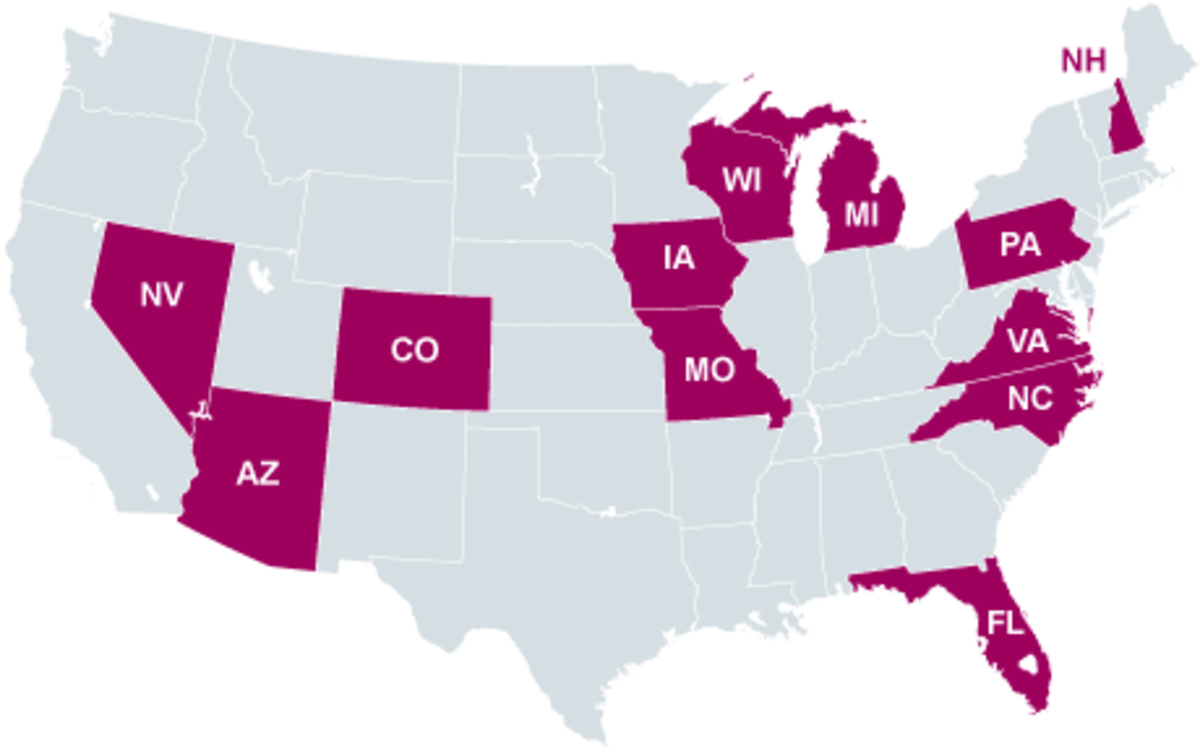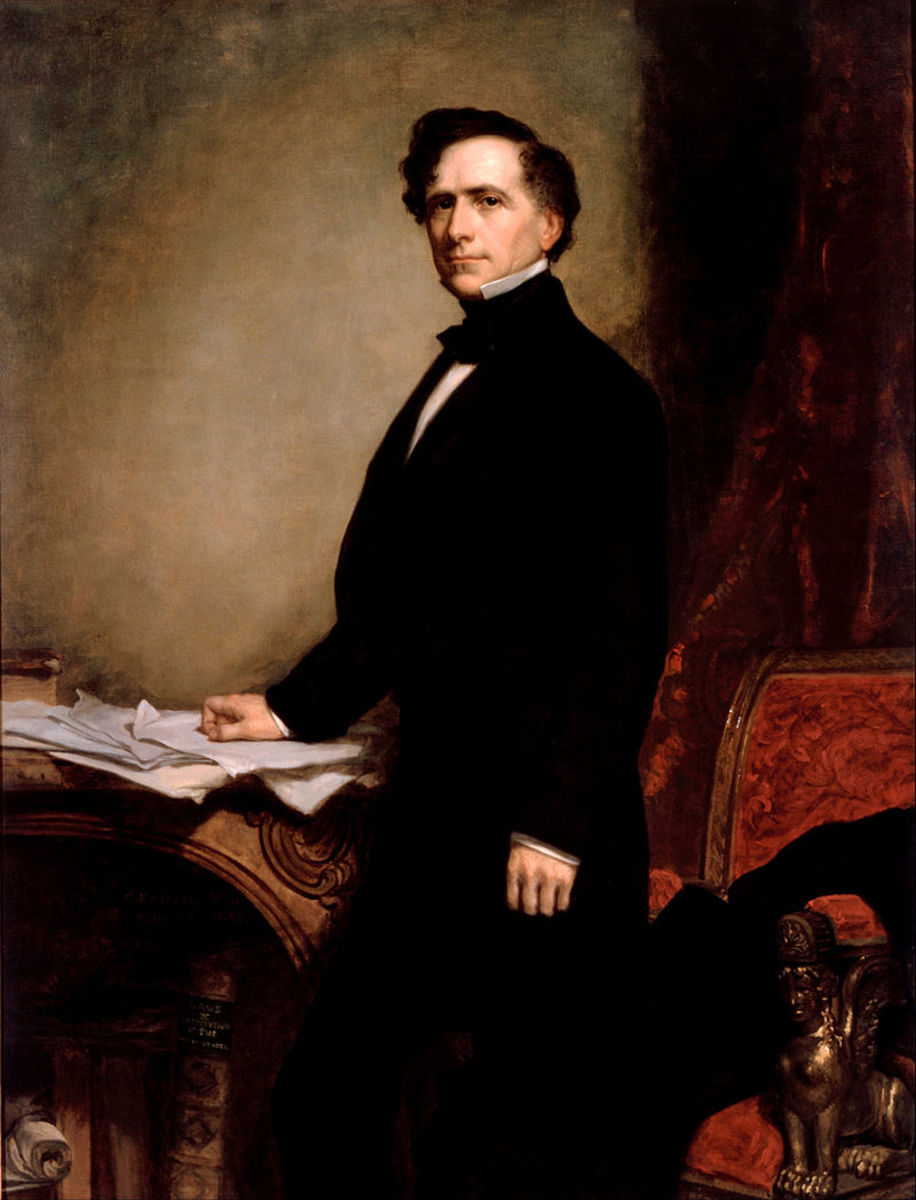Sanders’ Candidacy Deflects Attention Away From a Failing Democracy
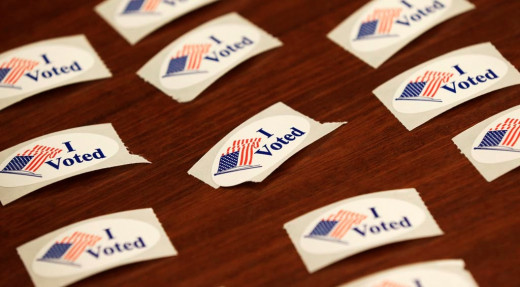
Bernie Sanders, the popular progressive Senator from Vermont, has decided to run in the Democratic primaries for president. I understand his logic: he wants to get more media coverage, be in some debates, get more donations and use the Democratic party infrastructure and brand to propel his campaign. However, it does a disservice to our democracy even if it is his best chance to become president.
A Sanders' run for the presidency of the United States as an independent would have highlighted the structural barriers 3rd party candidates face, even popular ones. These barriers can’t even be overcome by billionaires who can fund their own campaign.
One problem Sanders would face as an independent is that he would be excluded from any debates because he is not from the ‘approved’ parties. I don’t see any network, broadcast or cable, showing Sanders debating himself during an independent run for president. Sanders would get much less coverage as an independent and the stories of Hillary Clinton’s inevitability would double, at least.
His candidacy obscures the fact that third party candidates have a zero chance of winning office, let alone winning the presidency. That is why Sanders has never run as a Socialist or Green party member. He has always run as an Independent except a brief stint as a member of the anti-war Vermont “Liberty Union Party” in the early seventies. The anti-war movement lost relevance by 1976 as did the party. So Sanders became an independent for his future campaigns for office.
The parties want you to think they are diverse. They aren’t. They all have to adhere to their party platforms, and they pander to their base. That’s their base of donor millionaires and billionaires, not everyday working people. Those running for president are wealthy, mostly university educated, upper class politicians, lawyers and business people convinced of the American project: nationalism and militarism.
Yes, we can pretend that sixteen candidates in the Republican primaries represents diversity. However, they are all neoliberal, small government, school “reform”, foreign interventionists (with Rand Paul as an exception), anti-choice, 'Christian' and wealthy. What diversity?
Sanders discusses some progressive issues, and he has a track record trying to pass progressive legislation. However, what we need is a political, social and economic revolution. The U.S. two-party plutocracy is designed to keep real change from happening, and Sanders is part of that very structure.
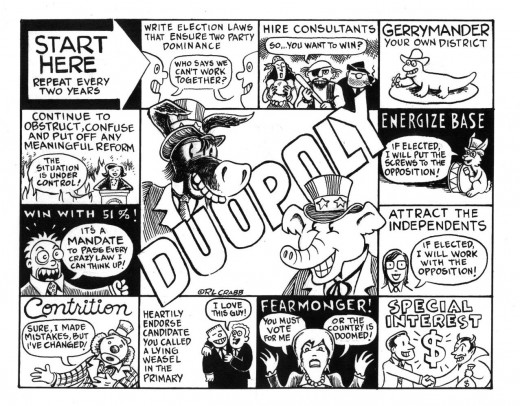
A Sanders' candidacy legitimizes the two-party system.
Sanders' campaign is propping up the two-party system when our nation desperately needs it to be challenged. The two major parties are extremely unpopular and Congress is hated, but we keep supporting them. Politicians face daunting odds if they work outside the two parties. However, Sanders has already proven he can do it by being a successful independent politician in Vermont for years. Now he refuses to take this mantel and challenge the system by remaining as an independent candidate. This gives power to the two-party system and proves once again that you can’t challenge them. It justifies their existence at time when they need to be dismantled.
Sanders running as a Democrat supports the undemocratic primary system.
Sanders has chosen to work within the undemocratic primary system that puts two extremely white states with rural populations first in line to select party nominees. Iowa and New Hampshire are about as representative of the U.S. population as the boy band, ‘N Sync.
Iowa and New Hampshire together have about 4.3 million people in a nation of about 319 million. These states represent less about 1.3% of the nation’s population but are given the responsible of virtually choosing the two parties’ candidates.
In fact, “The Iowa primary is not even a vote by the people. It has a caucus (group meetings with the party faithful) that favors party insiders and not candidates with alternative ideas. The primary in New Hampshire has very small turnout. For example, only three to four percent of voters nominated McCain in New Hampshire. So a few thousand votes in a small state decided who would represent the Republicans in 2008.”
Many state party primaries block voters not registered with one of the two major parties from their primaries. In this way, voters are coerced to sign-up with one of the two parties or have no vote in determining the choices for president.
Click to view: Iowa compared to US demographics
Click to view: New Hampshire compared to the United States
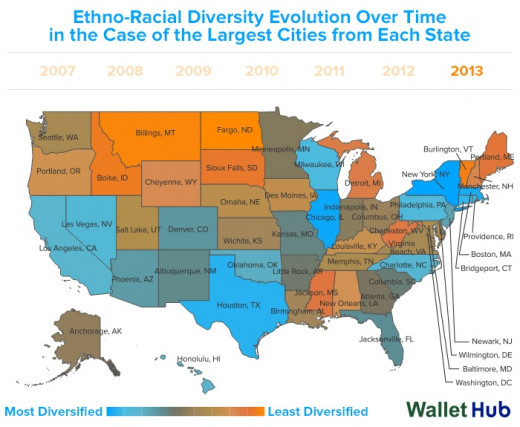
The two major parties have widely watched debates on major television networks, and they make sure they limit participation to ‘acceptable’ candidates. Moreover, “the choice of candidates is severely restricted by party insiders, money, and the election process.” (ibid) In 2008, Dennis Kucinich was excluded from a debate in Las Vegas and subsequent debates even though he was on the ballot. It appears they didn’t like that he challenged the status quo.
Kucinich Takes on the Democratic Establishment
Sanders' run is not a real challenge to the structural deficiencies in the U.S. democracy. Sanders' running as a Democrat is in no way a challenge to politics as usual in the United States. That can’t be changed with one candidate. It needs to be changed with a social or political revolution. The whole electoral system is set up to prevent change that would put a majority of people in power. One person can’t change that.
Our system is rife with undemocratic processes including Gerrymandering, limited choices, voting restrictions in many red states (though recently facing push back), limited information and so forth. Sanders won’t challenge the structure of our democracy even if he might want it to be a nicer, more egalitarian plutocracy.
Sanders’ candidacy sells progressives and independents a false hope that campaigning together within the confines of a two-party system with its structural deficiencies can affect real change. It’s 2008 all over again. Once again progressives have a candidate that they can support in Sanders. He represents the illusory possibility that with enough support, a candidate can win over the power of billions in cash donations and powerful political forces. In fact, the oligarchy will do anything to either prevent him from winning or keep him from affecting any real change if an unfortunate mishap, from an elite point of view, should occur and Sanders gets elected.
Don’t be fooled. Sanders is not the answer to the plutocratic government we have, even if he is a better choice than the other major party candidates. If he wins, it will be within the confines of a plutocracy where he will have little chance to make real change.
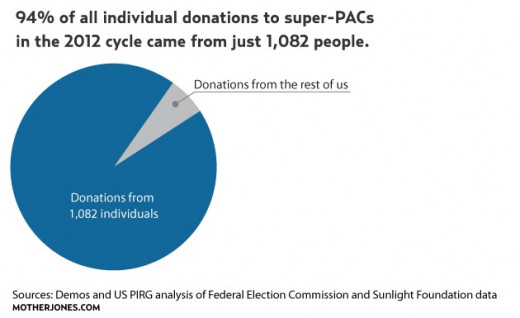
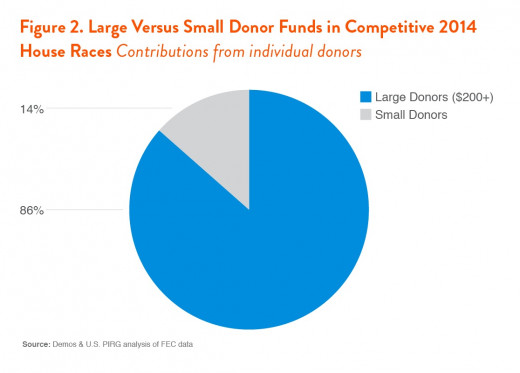
With Sanders, there is the illusion that individual small donors make a difference.
The Sanders candidacy is getting some attention partly because of all the small donations he is receiving, and it’s adding up. More than 80% of his donations are $200 or less and he has a total of $15.2 million as of July. However, that compares to $67.8 million for Clinton and $120 million for Jeb Bush, many of their donors giving the maximum of $2500. That doesn’t include all the PAC money that will go their way.
The Sanders’ story is quaint, but it ignores reality. No matter how popular his ideas might be, or strong the desire for an alternative candidate, he will be drown under Clinton’s money. And it will not be her ideas or her popularity that wins the nomination for Clinton.
A Sanders candidacy hides the terrible policy positions of the Democratic Party.
I believe Sanders has hopes of changing the Democratic Party from within. However, his campaign is only fooling the vestiges of the party membership into thinking the Democrats are anything other than corporate warmongers.
Thankfully, there are many who don’t buy the propaganda about a Sanders' candidacy. Just because he can make a run at the coronated one, Clinton, doesn't mean that democracy is alive and well in the United States. It's not.
Peace,
Tex Shelters

